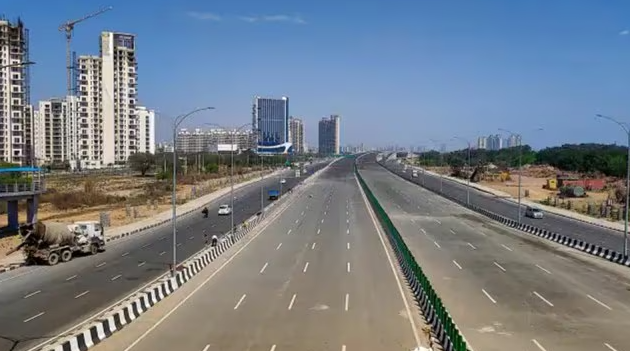Cabinet Approves Eight National High-Speed Road Corridor Projects Worth Rs 50,655 Crore (GS Paper 2, Government Policies/Development)

Why in News?
- In a landmark decision, the Union Cabinet has sanctioned eight high-speed road corridor projects totaling 936 kilometers and a staggering cost of Rs 50,655 crore.
- This strategic move is designed to significantly boost logistics efficiency, reduce traffic congestion, and enhance connectivity across various regions of India.
- The projects are expected to generate approximately 4.42 crore man-days of employment, offering a substantial economic benefit and contributing to regional development.
Introduction
- India's infrastructure development has reached a pivotal moment with the approval of these eight National High-Speed Road Corridor projects.
- The initiative aims to address critical bottlenecks in the country's transportation network, facilitate smoother logistics, and promote economic growth by enhancing connectivity between major cities and industrial hubs.
- The comprehensive nature of these projects reflects the government's commitment to building a robust and modern transportation infrastructure that supports sustainable development and regional integration.
Detailed Overview of Approved Projects
Nashik Phata-Khed Corridor
- Length: 30 km
- Type: Eight-lane elevated
- Cost: Rs 7,827 crore
- Project Details: This corridor, situated near Pune, is set to alleviate congestion in the Pimpri-Chinchwad area and resolve logistic challenges. Developed under the Build-Operate-Transfer (BOT) model, it will improve traffic flow and connectivity around one of the region's most densely populated areas.
Agra-Gwalior Corridor
- Length: 88 km
- Type: Six-lane
- Cost: Rs 4,613 crore
- Project Details: Designed to reduce travel time between Agra and Gwalior by 50%, this corridor will shorten the distance between the two cities by 7%. The corridor, developed under BOT, is expected to significantly enhance travel efficiency in this crucial corridor.
Tharad-Ahmedabad Corridor
- Length: 214 km
- Type: Six-lane
- Cost: Rs 10,534 crore
- Project Details: Aimed at improving port connectivity, this corridor will reduce travel time between Tharad and Ahmedabad by 60%. The project, developed in BOT mode, will streamline logistics and enhance economic activities in the region.
Kanpur Ring Road
- Length: 47 km
- Type: Six-lane
- Cost: Rs 3,298 crore
- Project Details: This new ring road will address congestion on the existing ring road. The project, developed in Engineering, Procurement, and Construction (EPC) mode, will start from Design Chainage 23+325 to Design Chainage 68+650, improving traffic management around Kanpur.
Kharagpur-Moregram Corridor
- Length: 231 km
- Type: Four-lane
- Cost: Rs 10,247 crore
- Project Details: Set to transform the economy of West Bengal and the northeastern region, this corridor will increase traffic capacity fivefold and reduce freight travel time from 9-10 hours to 3-5 hours. The corridor will be developed under Hybrid Annuity Mode (HAM).
Ayodhya Ring Road
- Length: 68 km
- Type: Four-lane
- Cost: Rs 3,935 crore
- Project Details: Designed to facilitate faster travel to Ayodhya, this ring road will connect major transportation hubs, including the Lucknow International Airport and Ayodhya Airport. The project will be executed under HAM mode.
Pathalgaon-Gumia Section of Raipur-Ranchi Corridor
- Length: 137 km
- Type: Four-lane
- Cost: Rs 4,473 crore
- Project Details: This section, part of the larger Raipur-Ranchi High-Speed Corridor, will be developed under HAM mode and will further enhance regional connectivity and logistical efficiency.
Guwahati Ring Road
- Length: 121 km
- Type: Four-lane
- Cost: Rs 5,729 crore
- Project Details: This project includes three sections: Northern Guwahati Bypass (56 km), widening of the existing four-lane bypass (8 km), and improvement of the existing bypass on NH 27 (58 km). It also features a major bridge over the Brahmaputra River and will be developed in BOT mode.
Strategic Significance
- The approval of these high-speed road corridors marks a significant milestone in India's infrastructure development.
- These projects are poised to address critical transportation gaps, reduce travel times, and enhance economic activities across various regions.
- By improving logistics efficiency and decongesting existing routes, they will contribute to India's economic growth and regional development.
Conclusion
- The cabinet's decision to approve these high-speed road corridor projects underscores the government's dedication to modernizing India's transportation infrastructure.
- With an investment of over Rs 50,000 crore, these projects will not only enhance connectivity but also stimulate economic development and job creation.
- As construction progresses, these corridors will play a crucial role in shaping the future of India's transportation network and supporting its ambitious growth agenda.


